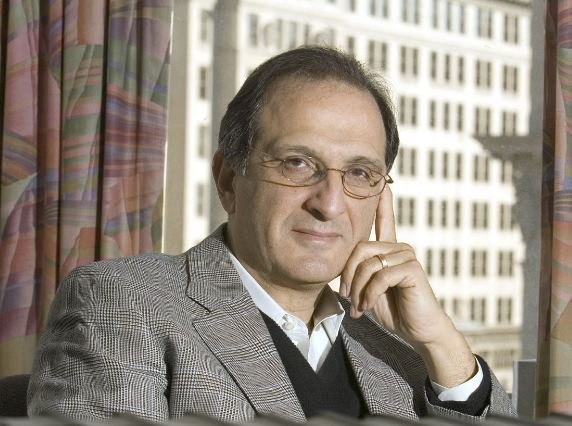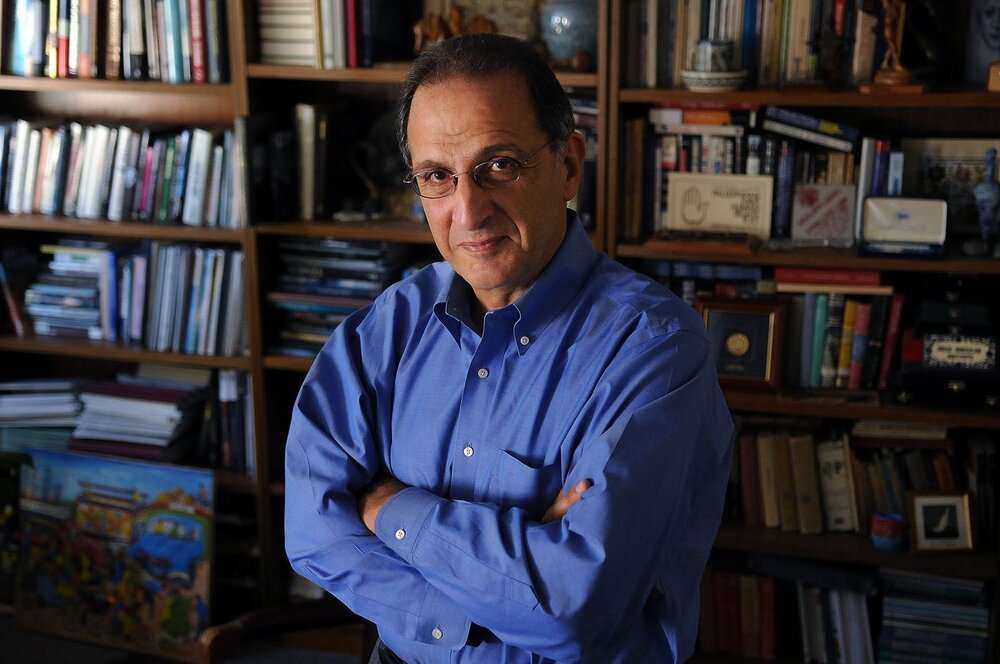Washington Watch Articles From 1992 to 1999
Since 1992, Zogby has written a weekly column on current events and U.S. politics.
This column, Washington Watch, has been published around the world in fourteen countries.
Beginning in 2020, Zogby began weekly conversations titled, “Coffee and a Column with Jim,” where he discusses his latest Washington Watch column and engages in conversation with attendees. Coffee and a Column with Jim is live every Wednesday at 2PM Eastern. Unique registration links are available in each Washington Watch column and on social media.
Washington Watch Articles From 1999
I have not been impressed with the millennial hype that we have been forced to endure during the past few years. Since President Clinton campaigned on the theme of “building a bridge to the 21st century” and then, in victory, termed his presidency as the “first of the next millenium”—we have been subjected to an excessive abuse of the “new era” notion.
At the opening of the Israeli-Syrian peace talks in Washington, Syrian Foreign Minister Farouk Shara’a delivered a most interesting set of remarks.
As we approach the end of 1999, the presidential contests have become far more intriguing affairs then they appeared to be just a few months ago.
Three events occurred during the past two weeks that we had hoped might give some shape and generate some new foreign policy ideas in the race for the 2000 Republican presidential nomination.
Both Democratic Vice President Al Gore and Republican Senator John McCain addressed our Arab American National Leadership Conference earlier this month.
The New York tabloid press and a handful of pro-Likud hawks had a field day attacking First Lady Hillary Clinton last week.
The newspaper headlines reporting on this year’s Arab American National Leadership Conference said it best.
With 10 weeks remaining before the first presidential primary elections of 2000, the Republican and Democratic contests have become quite interesting.
When a federal judge ruled, last week, that the use of secret evidence in deportation cases represented an unconstitutional violation of due process, the Arab American political agenda for 2000 received an important boost.
It is still possible that this session of Congress will end without serious damage being done to the Middle East peace process and U.S. foreign policy in the region.
Washington Watch Articles From 1998
In Israel they are calling it the “big bang” and by that they do not mean merely the collapse of the Netanyahu government.
The 2000 race for the U.S. Presidency is about to begin. It will gain in momentum during the next few months.
The Wye process is in a shambles. Nevertheless, when President Clinton travels to Gaza next week to address a meeting of the Palestine National Council (PNC), analysts throughout the Middle East will debate the meaning and significance of the visit.
During the next month the Middle East will host a number of prominent American political leaders. Some of these visits could play an important role in reshaping the U.S. discussion of the Middle East conflict.
The Republican Party is in a quandary. On the one hand it is clear that the Republicans’ impeachment strategy backfired in the 1998 elections.
Last August the United States destroyed a Sudanese pharmaceutical plant mistakenly suspected of producing chemical and biological weapons (CBW).
The 1998 elections are over and the Republican Party remains in control of both the U.S. Senate and the House of Representatives.
As an American political constituency, Arab Americans have two major sets of issues that drive the community’s agenda: civil rights and U.S. policy in the Middle East.
The nine-day ordeal at the Wye Plantation produced an agreement that can only be described as Bill Clinton’s triumph.
Washington Watch Articles From 1997
In late October 1997, Pat Robertson, a prominent leader of the fundamentalist Christian right wing movement, speaking on his national televised “700 Club” program, launched into an ugly diatribe against Islam.
Israel’s Prime Minister Benjamin Netanyahu showed up empty handed for his meeting with U.S. Secretary of State Madeline Albright.
The Middle East peace process is approaching yet another fateful deadline. United States Secretary of State Madeline Albright has given Israeli Prime Minister Benjamin Netanyahu until December 17 to present a specific proposal for redeployment of the West Bank.
Sometime before the end of December, the U.S. Immigration and Naturalization Service (INS) will formally appeal an immigration judge’s decision to allow Imad Hamad to remain in the United States and become a U.S. citizen.
The story alleging that the Clinton Administration sold burial plots in Arlington National Cemetery surfaced, gained national prominence and was proven false last week.
As events of the past few weeks have made clear, the twin pillars of U.S.-Middle East policy (the Arab-Israeli peace process and the dual containment of Iran and Iraq) are in trouble.
Dr. Ron Walters, a professor of political science at the University of Maryland and one of the leading African-American intellectuals, was once asked to explain the “Farrakhan phenomenon.” Minister Louis Farrakhan is the current leader of the movement in the U.S. known as the Nation of Islam.
The negotiating positions that the Israeli side brought to Washington last week, and one might add, the fact of the negotiations themselves, stand in stark contrast to the very logic supposedly underlying the fourth Middle East/North Africa (MENA) Economic Summit due to take place in Doha.
Despite significant progress in race and ethnic relations in the U.S., problems still remain.
Although 1997 is considered an off year for electoral politics, Arab Americans are deeply engaged in key campaigns across the U.S.
Washington Watch Articles From 1992
President-elect Bill Clinton has almost completed his first round of cabinet and sub-cabinet appointments. The process has been a fascinating one to watch, and by watching there is a great deal to learn about Clinton's style of governing.
A steady stream of major political interest groups and constituent organizations have paraded in and out of the Clinton Presidential Transition offices in downtown Washington in the past three weeks. They go in with positions papers, hoping to influence future policy; or with stacks of resumes, hoping to secure important positions for their members and supporters.
Electoral politics is a never-ending game in the United States. No sooner has one election ended than preparation begins for the next round. This time, however, the next round may come much sooner than anyone expected.
One month after winning the Presidency, and six weeks before assuming office, Bill Clinton is facing a dramatically changing political landscape, both inside the Washington beltway and the world outside it.
There are at least three major political "name games" being played simultaneously in Washington these days. The outcome of all three will be critical in determining the political direction of the country during the next four years.
The transition from the Bush to the Clinton Administration is in full swing. Not only did President-elect Bill Clinton come to Washington this week to meet with Congressional leaders on Capitol Hill and President George Bush at the White House, but the Democrats' transition offices have opened; and they are beginning to lay out their plans for the most massive shift of government policy and personnel that this city has witnessed in the past twelve years.
This week President-elect Bill Clinton makes his first post-election visit to Washington to meet with the congressional leadership. His priority will be to solidify his ties with the legislative branch and build amicable working relationships, which he will need to get his initial proposals through Congress in a timely manner.
There has been a great deal of analysis and commentary in the Arab press about the impact of a Clinton presidency on the Arab world. Many of the articles I have seen have been fundamentally flawed, based as they were on simplistic distortions or inadequate analysis.
As recently as one week ago the outcome of the U.S. election seemed certain. Bill Clinton's lead appeared to be so insurmountable, especially in several key electoral states, that no political analyst I know could imagine a realistic scenario that could turn the election around for George Bush.
This will be an all-or-nothing week for George Bush. His campaign has been attacking Bill Clinton and struggling since the Republican National Convention. But Bush does not seen to be gaining any ground.


